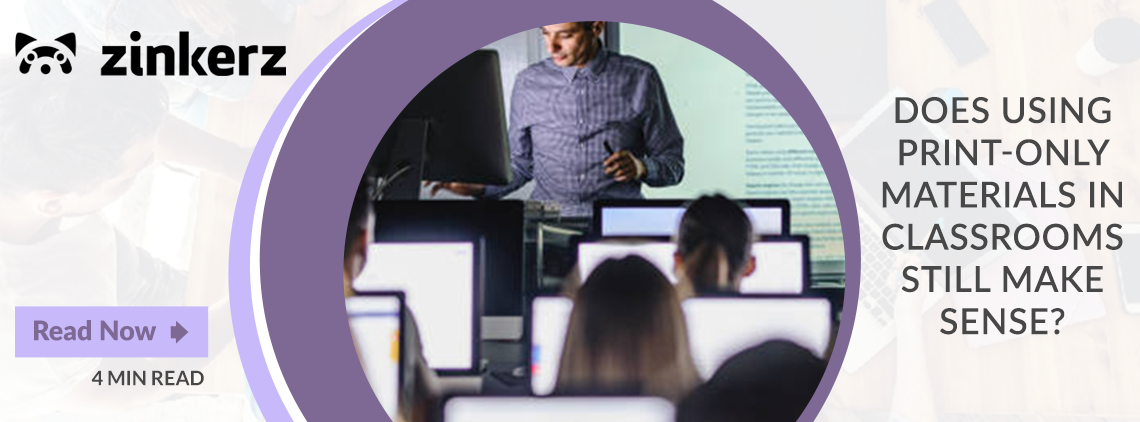It’s a belief heard more and more often in the world of education: “Printed material is dead!” Over the past few decades, digital material has made itself more and more at home in schools. With technology becoming more ingrained in everyday learning, it is easy to see how the downfall of printed materials can seem inevitable. COVID-19 only accelerated this change. Before the pandemic, many teachers still exclusively used printed materials in their classes. However, switching to virtual learning forced most to use digital material for lessons, at least some, if not solely. Now that in-person classes are back in session, the question remains: does using print-only materials in the classroom make sense anymore?
There are many advantages to using digital learning materials.
Accessibility and portability are primary examples. A student’s backpack often contains textbooks, notebooks, folders, and pencils. Material can be easily forgotten or lost, and it can be a hassle to carry it from class to class. But with digitalized material, those problems have become a thing of the past. Rather than lugging around several items, a student’s load is reduced to a single device, with everything they need at their fingertips. Gone are the days of lost books or forgotten homework: everything a student requires is all in one place.
Additionally, digital devices make accessing assignments from almost anywhere a breeze. For example, students taking classes with Zinkerz can access their material from any device at any time. Never before has accessing assignments for class been so convenient.
Digital materials also offer students a more immersive class experience and help them put what they have read into context. Reading about rainforest ecology in class is one thing, but watching a video gives students more insight into the subject. They can see just how slowly a sloth climbs a tree, watch how a leopard stalks its prey, or hear the frog-like croak of a toucan. Added elements like gamification can also benefit students while learning by keeping them engaged and encouraging creativity and competition. These advantages can be nearly impossible to replicate without the use of technology.
However, the rise of digital materials doesn’t mean paper-based learning is obsolete.
There are several strengths to having paper-based material in classrooms. Writing with a pencil or pen encourages the development of essential fine motor skills in younger students. For older students, studies show that writing notes by hand can help with information retention more than writing notes on a computer or phone. Printed material also allows students to annotate information in a text more efficiently than on a computer.
Studies also show that reading from a printed document encourages “recall,” the ability to remember details about a text. At the same time, recall alone does not equate to a strong understanding of a text; reading from printed materials assists with comprehension. These are why we at Zinkerz ask our SAT prep students to print their weekend mock tests before taking them. Increased recall ability and greater awareness may have to do with the fact that, compared to printed material, many students are tempted to multitask or become distracted while reading digital texts. All that said, there is value in continuing to use printed materials for learning.
It’s safe to say that digital materials in classrooms aren’t going anywhere soon.
They are almost guaranteed to increase in the coming years. But that doesn’t mean that printed materials in the classroom are in any way a thing of the past. It’s difficult to argue that one can ever exist without the other. Therefore, more emphasis should be placed on balancing both learning forms rather than focusing on the preferability of printed or digital content for lessons. Students can reach their full potential only when both types of material are used together in equilibrium.



